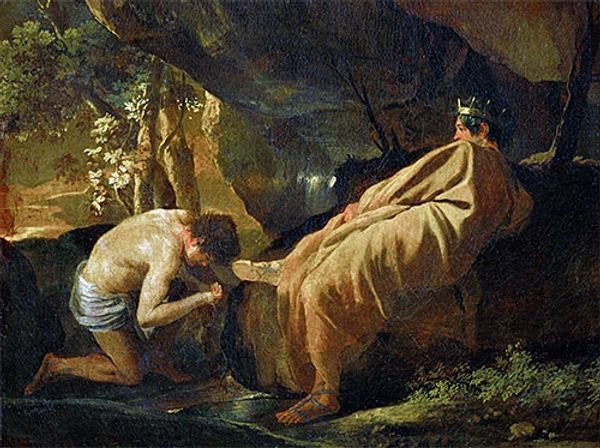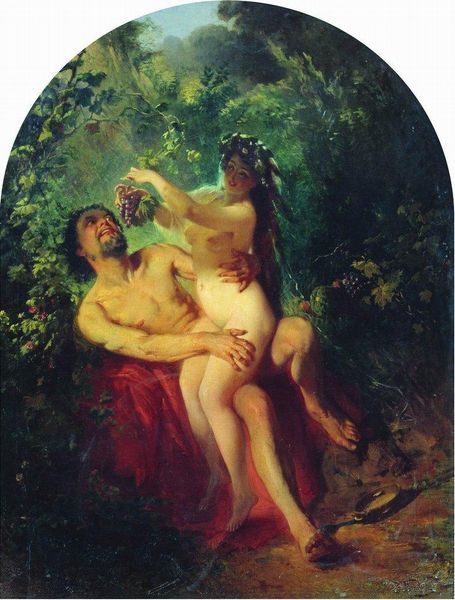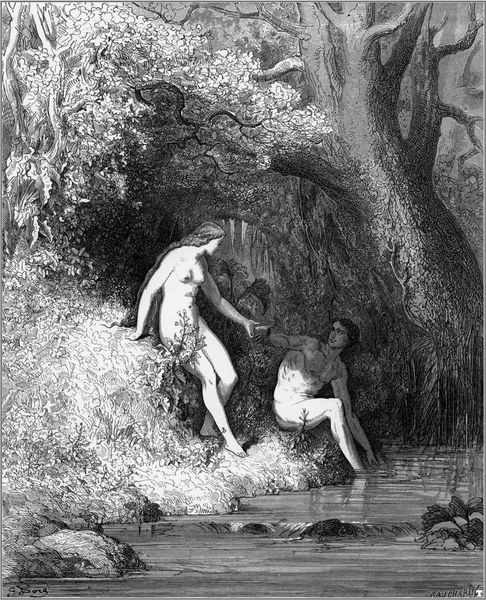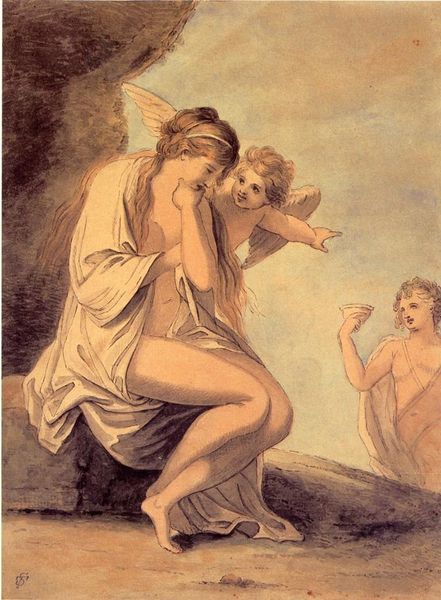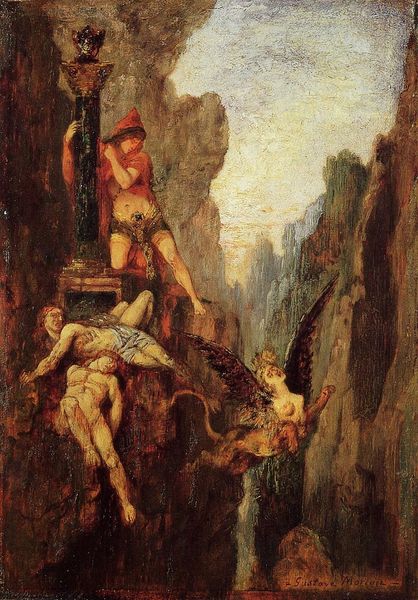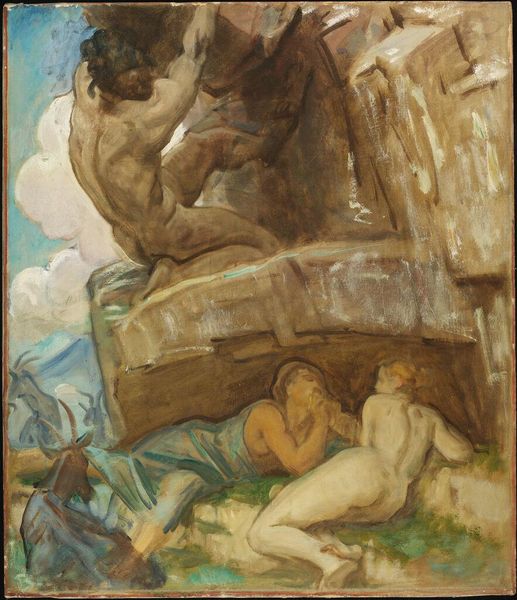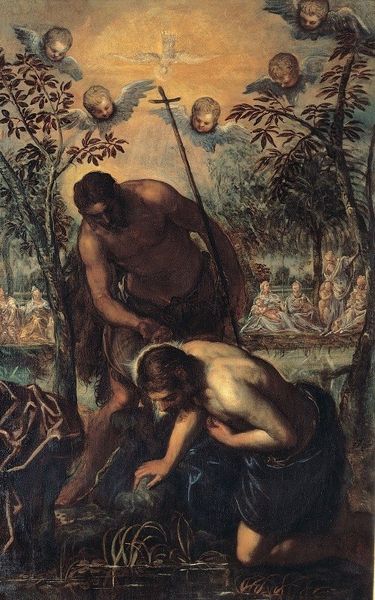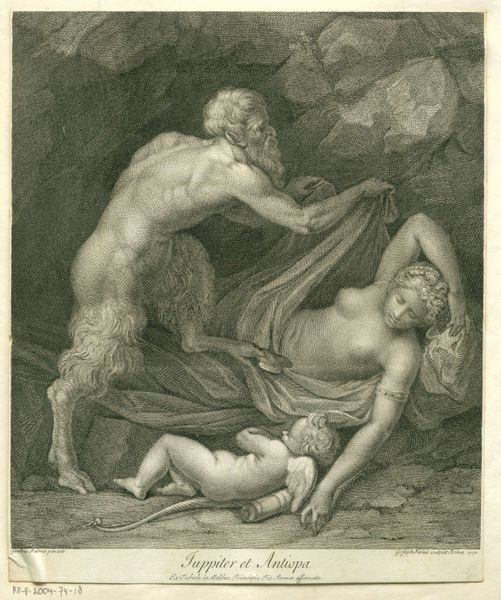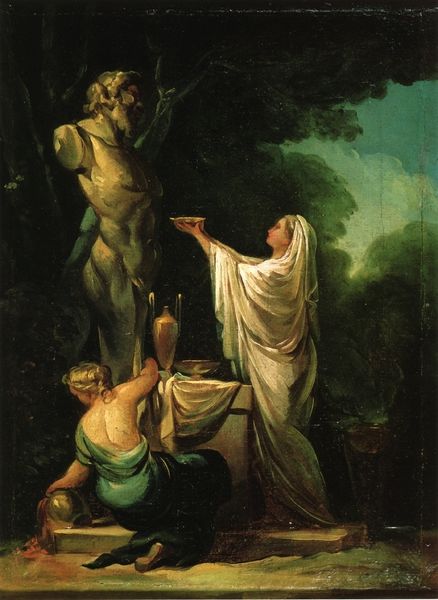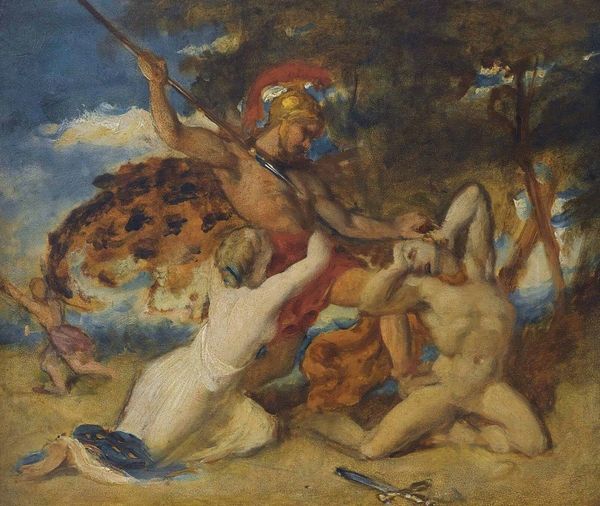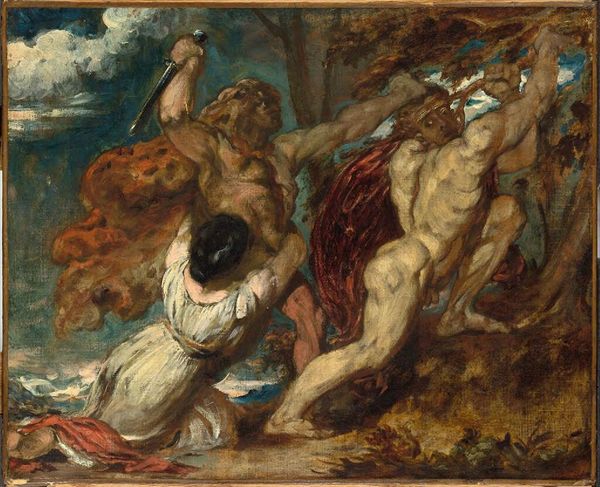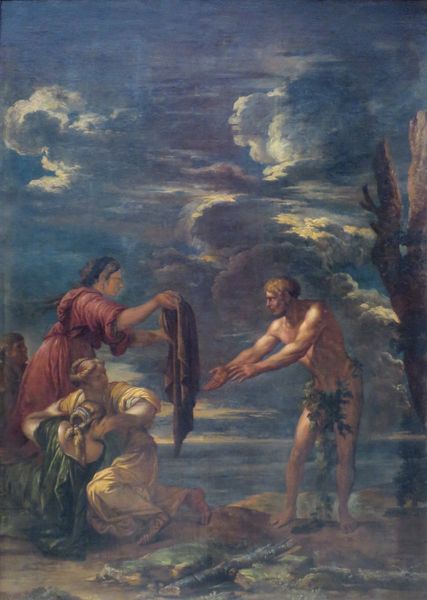
painting, oil-paint
#
narrative-art
#
painting
#
oil-paint
#
landscape
#
figuration
#
oil painting
#
mythology
#
history-painting
#
academic-art
#
nude
#
realism
Dimensions: 60 x 47.5 cm
Copyright: Public domain
Curator: Here we have Ilya Repin's 1867 oil painting, "Diogenes and the Boy." Editor: It strikes me immediately as a rather muted depiction. The palette seems very earthy, lending the scene a solemn, almost melancholic air. Curator: The painting depicts the story of Diogenes, the Greek philosopher known for his ascetic lifestyle and critique of societal values, and a young boy. Diogenes, holding a bowl, encounters the boy drinking water from his hands. This prompts Diogenes to discard his bowl, realizing that nature provides a simpler way to satisfy needs. Editor: The symbolism is pretty straightforward but layered. Diogenes's rejection of the bowl—a man-made object—represents a move towards radical naturalism and the abandonment of superfluous comforts and values. It's a powerful visual argument against the complexities and excesses of civilization. Considering the political atmosphere in Russia at that time, could we consider Repin’s choice of subject matter a subtle critique of the aristocracy? Curator: Indeed, viewing Repin's "Diogenes and the Boy" through the lens of Realism provides us with context. By presenting a scene of philosophical enlightenment through the encounter with the impoverished boy, Repin employs historical painting as a tableau vivant—but it could equally act as a mirror reflecting societal inequalities of his day. And if you examine the application of paint itself, Repin's early work reflects the artistic influence of academic realism; consider his subtle modeling of the figures that adds considerable depth. Editor: It’s an intimate portrayal, despite its classical roots. Repin captures this tension by focusing on simplicity and, in essence, a counter narrative on cultural standards—all told through the interactions between these two figures in the landscape. Curator: What is interesting to note is how a classical trope such as the one Repin presents offers modern audiences—such as ourselves—a window into understanding historical philosophical tensions in understanding societal complexity and simple existence. Editor: Ultimately, I’m drawn to how the artwork invites us to question what we deem truly necessary. Curator: It certainly inspires reflection on one's own values.
Comments
No comments
Be the first to comment and join the conversation on the ultimate creative platform.
